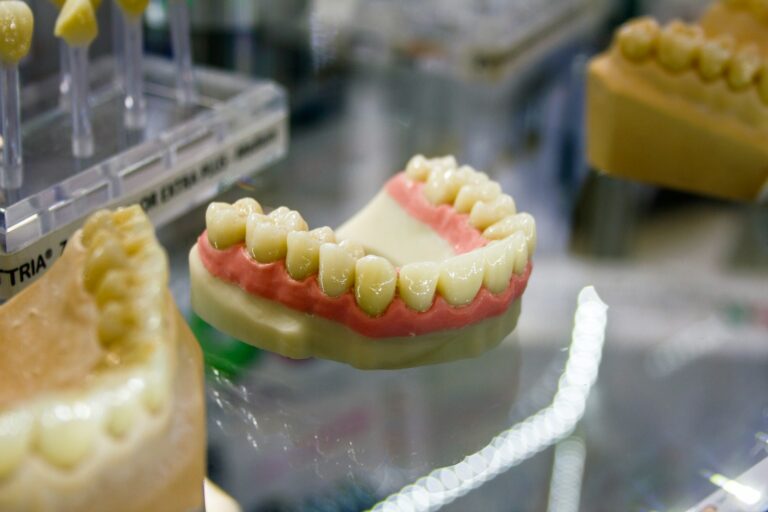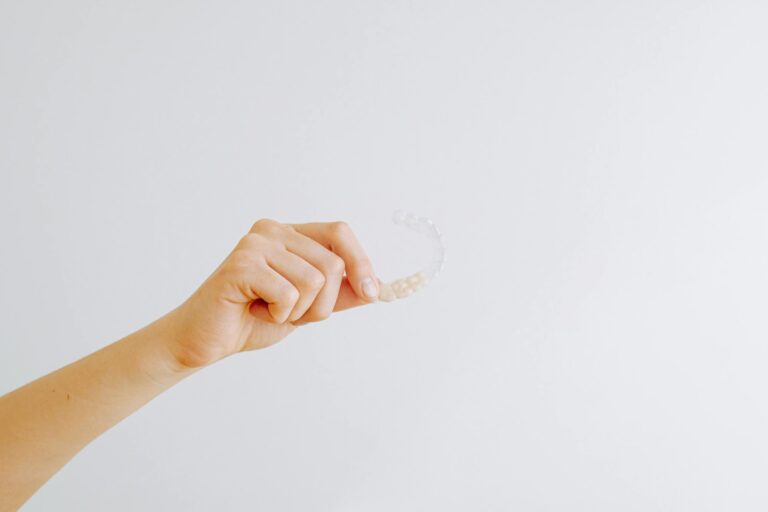
Teeth whitening can indeed enhance your smile, but it’s important to be mindful of your diet to maintain that brightness. After you have undergone a whitening treatment, certain foods and drinks can quickly undermine the results, potentially leading to staining or increased sensitivity.
What To Avoid After Whitening Your Teeth
To protect your newly brightened smile, it’s advisable to avoid specific items, including dark-colored beverages and acidic snacks. Fortunately, there are plenty of delicious alternatives and best practices you can adopt to help keep your smile shining bright for an extended period.
Why Should You Avoid Certain Foods and Drinks After Teeth Whitening?
After undergoing teeth whitening, many individuals feel excited to show off their bright smiles. However, it is important to understand the reasons for avoiding certain foods and drinks during this sensitive period.
Consuming items that are known to stain can result in unwanted discolouration, while others may contribute to enamel erosion, ultimately affecting long-term dental health. This concern extends beyond mere aesthetics; it is about preserving that radiant smile and maximising the effectiveness of the whitening treatment.
Let’s explore the specifics of what to avoid and why it is essential for post-whitening care.
What Foods and Drinks Should You Avoid After Teeth Whitening?

To preserve the results of your recent teeth whitening treatment, it is important to be aware of your diet. Some foods and beverages can act as staining agents, which may quickly dull the brightness of your smile.
Dark-coloured drinks like coffee and red wine, along with staining foods such as berries and soy sauce, should be approached with caution. Understanding what to avoid is crucial for maintaining your dental aesthetics.
This guide provides an overview of the specific foods and drinks to avoid following your whitening session.
1. Dark-colored Foods and Drinks
Dark-coloured foods and beverages are significant contributors to tooth staining following whitening treatments. Drinks such as coffee, tea, red wine, and dark soft drinks can leave behind unsightly discolouration that undermines your whitening efforts.
These staining agents have the ability to penetrate the enamel, making it essential to avoid them in order to maintain your bright smile.
Interestingly, even seemingly harmless options like blackberry juice and dark berry smoothies can lead to gradual yellowing or browning of teeth. As these pigments adhere to the surface of your enamel, the effects can be quite long-lasting.
For those who wish to enjoy a flavoursome beverage without the risk of stains, there are several alternatives to consider, such as:
- Herbal teas
- White wines
- Light-coloured juices like apple or pear
These choices can help keep your smile looking radiant while still allowing you to indulge in delicious drinks.
2. Acidic Foods and Drinks
Acidic foods and beverages can significantly impact your dental health, particularly following teeth whitening procedures. Foods such as citrus fruits and vinegar pose risks not only by contributing to enamel erosion but also by potentially interfering with whitening treatments, which may lead to less than desirable outcomes. By avoiding these high-acid items, you can help protect the brightness of your smile and maintain optimal dental hygiene.
Preserving the integrity of your enamel is essential, as it serves as a protective barrier for your teeth. When enamel is exposed to acidic substances, it not only becomes weakened but can also increase sensitivity, a concern that often arises after whitening treatments.
Instead of reaching for acidic snacks or drinks, consider opting for tooth-friendly alternatives, such as:
- Crunchy vegetables
- Dairy products
- Sugar-free gum
These choices can help neutralise acids in your mouth and promote saliva production, effectively supporting enamel health while keeping your smile bright and vibrant.
3. Sticky Foods and Drinks
Sticky foods and drinks can pose significant challenges for your teeth, especially following a whitening treatment. Items such as hard sweets and pastries have a tendency to cling to your teeth, which can promote plaque build-up and potentially lead to discolouration.
By steering clear of these sticky options, you can help ensure that your smile remains bright and free from dental issues.
Foods like caramel and gummy bears create an environment where bacteria can thrive, ultimately increasing the risk of cavities and gum disease. Additionally, sugary fizzy drinks and fruit juices can worsen staining, making it essential to choose alternatives that are kinder to your dental health.
Incorporating crunchy fruits and vegetables, such as apples and carrots, into your diet can be quite beneficial. They not only stimulate saliva production but also assist in scrubbing away plaque as you chew.
Drinking plenty of water is another excellent practice, as it helps wash away food particles and maintains the lustre of your whitened teeth.
4. Foods and Drinks High in Tannins
Foods and beverages rich in tannins, such as certain teas and red sauces, can lead to noticeable staining on teeth following a whitening procedure. Tannins are natural compounds that have a tendency to adhere to teeth, making them a significant concern for individuals aiming to maintain a bright smile. Recognising which items are high in tannins is crucial for effective dental care.
For example, drinks like black tea and red wine offer delightful flavours but also contribute to tooth discolouration, often diminishing the results of dental whitening treatments.
To mitigate the impact of tannins on tooth colour, individuals may consider:
- Rinsing their mouths with water immediately after consuming these items
- Using a straw to reduce contact
- Choosing lighter alternatives whenever possible
In addition, scheduling regular dental check-ups and professional cleanings can significantly enhance the effectiveness of whitening treatments, ensuring that a radiant smile is not merely a short-term result but a lasting achievement in dental aesthetics.
5. Carbonated Drinks
Carbonated drinks, which are often high in sugar and acidity, can negatively impact your teeth after a whitening treatment. These beverages not only pose a risk of staining but may also lead to increased sensitivity, making it uncomfortable to enjoy your favourite drinks.
To maintain a bright and healthy smile, it is advisable to avoid carbonated beverages during your post-whitening care.
The carbonation and acids present in these drinks can erode enamel, which is particularly vulnerable following a whitening treatment. This erosion can make teeth more susceptible to discolouration and can also increase sensitivity to hot and cold foods.
Instead of opting for these detrimental choices, consider healthier alternatives such as:
- Herbal teas
- Infused water
- Natural fruit juices
These options can hydrate and satisfy your cravings without the risks associated with sugary sodas.
By prioritising these safer choices, individuals can uphold the results of their whitening treatment and safeguard their dental health in the long run.
What Are the Alternatives to These Foods and Drinks?

Identifying alternatives to foods and beverages that might cause staining is essential for preserving your whitening results. Choosing white foods and non-acidic drinks allows you to enjoy your meals without compromising the brightness of your smile.
By making thoughtful choices, you can ensure that your teeth remain healthy and vibrant, even after undergoing a whitening treatment.
1. White Foods and Drinks
White foods and drinks are excellent choices for individuals seeking to maintain their bright smile after teeth whitening. Options such as milk, yoghurt, and cauliflower are low-staining and will not compromise the results of your whitening treatment. Incorporating these foods into your diet can support your oral care routine while allowing you to enjoy delicious meals.
Plus these options, it is worthwhile to consider including:
- White rice
- Potatoes
- Chicken
These foods provide essential nutrients while being gentle on the enamel. They not only help in preserving that radiant smile but also serve as a satisfying base for nutritious dishes.
Coconut water is a refreshing beverage choice after whitening, as it hydrates and replenishes electrolytes without introducing any staining agents. By embracing a variety of these safe options, individuals can enjoy a wholesome diet that aligns with their oral health goals, ultimately enhancing the longevity of their bright smile.
2. Non-acidic Foods and Drinks
Choosing non-acidic foods and beverages is essential for protecting your teeth after a whitening treatment. Options such as herbal tea and bananas not only help maintain a bright smile but also support lasting hydration and dental health. By selecting low-acid choices, you ensure that your teeth remain healthy and vibrant.
Non-acidic foods, such as water-rich cucumbers and crunchy carrots, are particularly important for maintaining moisture levels in the mouth, which is vital for saliva production. Saliva naturally protects teeth from decay and neutralises harmful acids. Additionally, options such as almond milk and avocado are not only nutritious but also gentle on tooth enamel.
Incorporating these foods into your diet can greatly enhance your overall dental health while improving your hydration. By avoiding high-acid foods and beverages, you can effectively reduce the risk of enamel erosion, thereby taking a comprehensive approach to sustainable smile care.
3. Crunchy Foods
Incorporating crunchy foods into your diet can be an enjoyable and beneficial approach to supporting your dental hygiene following teeth whitening.
Foods such as apples and carrots serve as natural scrubs for your teeth, effectively helping to remove plaque and maintain a fresh smile. Not only do these snacks taste delightful, but they also play a significant role in keeping your smile bright.
Snacking on crunchy options like celery and nuts can stimulate saliva production, which is vital for neutralising acids and washing away food particles. Additionally, opting for whole grains like popcorn can provide that satisfying crunch while further promoting oral health.
By integrating these wholesome snacks into your daily routine, individuals can enhance their dental care efforts and foster stronger, healthier teeth in a naturally enjoyable manner.
4. Low-tannin Foods and Drinks
When searching for low-tannin foods and beverages, options such as white wine and light-coloured fruits can be excellent selections. These alternatives not only reduce the risk of staining but also offer a refreshing and enjoyable addition to your post-whitening diet. By carefully considering your choices, you can promote oral health and maintain your bright smile.
Incorporating foods like apples, pears, and cucumbers can be particularly beneficial, as they not only contribute to natural whitening but also support overall dental hygiene. Herbal teas, which tend to be lower in tannins compared to their black counterparts, also serve as flavourful, stain-free beverage options.
Focusing on these dietary choices not only protects against discolouration but ultimately enhances the effectiveness of your whitening efforts. Additionally, staying hydrated with water throughout the day can help rinse away food particles and decrease the likelihood of stain formation, seamlessly integrating into your oral health routine.
5. Water and Herbal Tea
Water and herbal tea are excellent choices for staying hydrated after a teeth whitening procedure. These options are free from staining agents and acidity, making them ideal for protecting your smile. By prioritising hydration through these beverages, you support both your dental health and the longevity of your whitening results.
Staying adequately hydrated is particularly important after a whitening treatment, as it helps flush away food particles and bacteria that can contribute to plaque build-up. Herbal teas, like chamomile or peppermint, not only provide hydration but also offer soothing properties that can further enhance oral care.
By opting for these beverages instead of sugary drinks, you can significantly reduce the risk of cavities and promote healthier gums. Ultimately, incorporating water and herbal tea into your daily routine not only quenches your thirst but also reinforces your commitment to maintaining a bright and healthy smile.
How Long Should You Avoid These Foods and Drinks After Teeth Whitening?
The duration for avoiding certain foods and drinks after teeth whitening can greatly affect the long-term success of your treatment. It is generally recommended to refrain from consuming staining and acidic foods for at least 24 to 48 hours following the procedure.
However, some dental professionals may suggest a longer abstention based on individual circumstances. Following these dietary guidelines can help ensure that your smile remains bright and white.
What Are the Best Practices for Maintaining White Teeth?
Maintaining white teeth after a whitening treatment involves a blend of effective practices and diligent care. Regular dental appointments, choosing suitable dental products such as whitening toothpaste, and adhering to a balanced diet can all play a significant role in achieving long-lasting results.
By making these best practices a priority, individuals can ensure that their smiles remain bright and healthy for years to come.
Frequently Asked Questions
What are the top foods and drinks to avoid after whitening your teeth?
The top foods and drinks to avoid after whitening your teeth are acidic fruits and juices, coffee, tea, red wine, soda, and dark coloured sauces and condiments. These can stain or damage your teeth, undoing the effects of whitening.
Why should you avoid acidic fruits and juices after whitening your teeth?
Acidic fruits and juices such as lemons, oranges, and grapefruits can erode the enamel on your teeth, making them more susceptible to staining. It is best to avoid them for at least a day after whitening to maintain your results.
How long should you wait before consuming coffee, tea, and red wine after whitening your teeth?
You should wait at least 48 hours before consuming coffee, tea, and red wine after whitening your teeth. These beverages are known to cause staining and can reverse the effects of whitening if consumed too soon.
What are some alternatives to tea and coffee after whitening your teeth?
If you want to avoid staining your teeth but still need a caffeine boost, try drinking green or herbal tea that is lighter in colour. You can also opt for caffeine-free drinks such as decaf coffee or herbal beverages.
Can you consume soda after whitening your teeth?
No, you should avoid soda after whitening your teeth. Not only do they contain high amounts of sugar which can lead to tooth decay, but they also contain artificial colouring which can stain your teeth.
Why should you avoid dark coloured sauces and condiments after whitening your teeth?
Dark coloured sauces and condiments such as soy sauce, balsamic vinegar, and tomato sauce can easily stain your teeth. It is best to avoid them for at least 48 hours after whitening to maintain your results.





